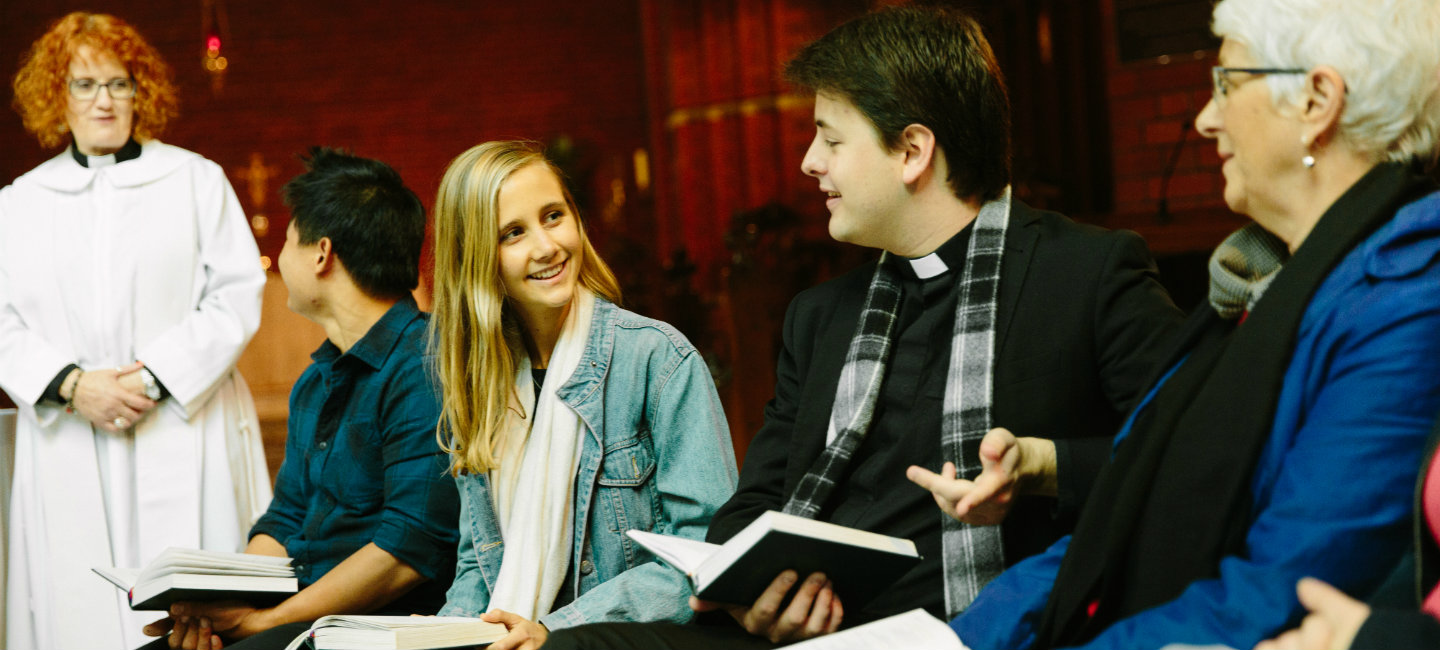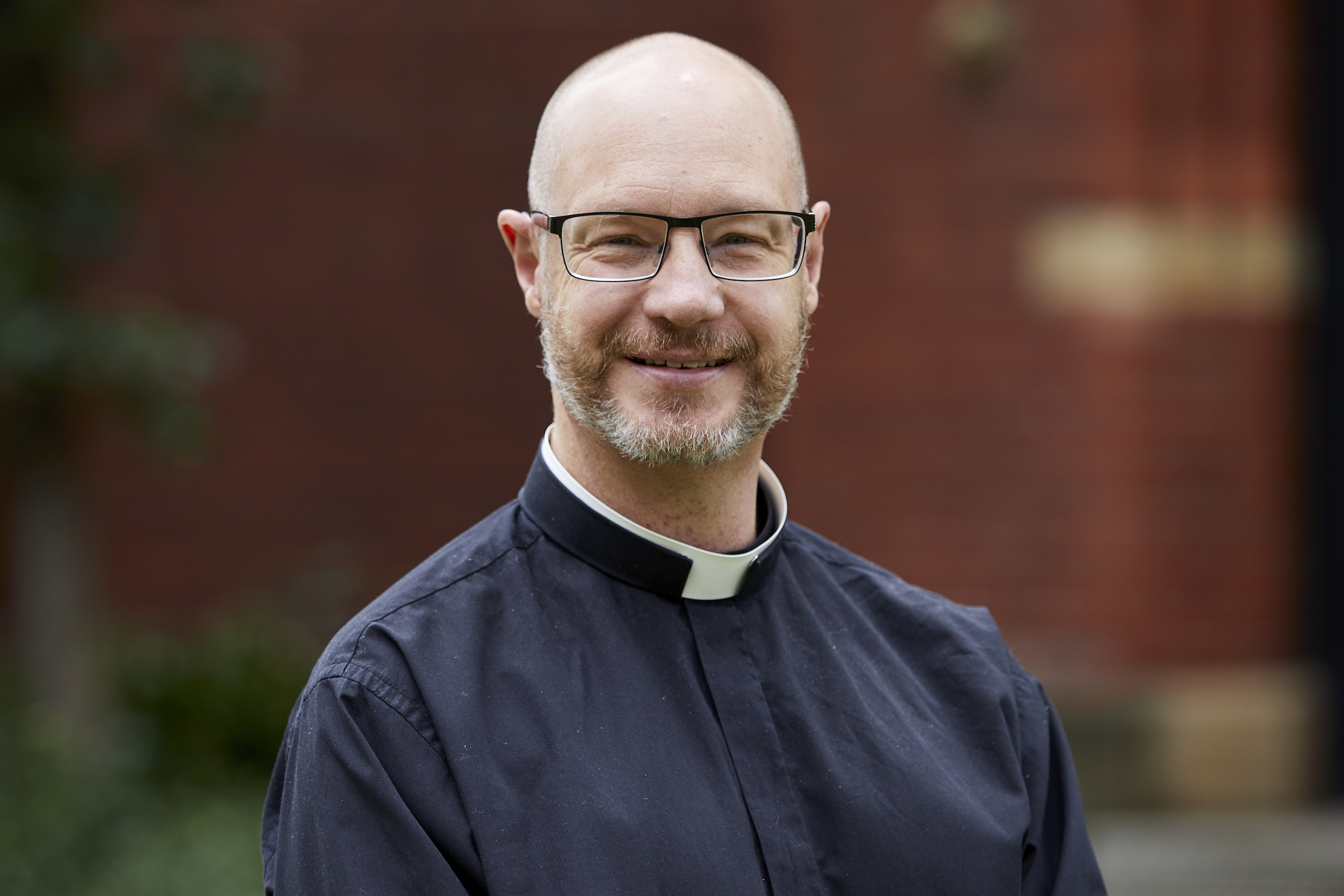

0001-01-01

The Revd Professor Mark Lindsay, FRHistS
BA(Hons) UWA, GradDipTheol MCD, PhD UWA
Joan F W Munro Lecturer in Historical Theology
Deputy Dean and Academic Dean
Mark Lindsay is an historical theologian, with over 20 years of experience teaching, researching, and providing senior academic leadership in Australian and overseas universities. His specific areas of interest are Barthian and post-Holocaust theologies, Patristic and modern European Church History, and Anglican Studies. He is a priest in the Anglican Diocese of Melbourne.
Current Research Areas
- the theologies of Karl Barth
- Markus Barth's life and theology
- Jewish-Christian dialogue
- Dietrich Bonhoeffer's life and theology
- the doctrine of election
- eschatology
Areas for Supervision
- the theologies of Karl Barth, Markus Barth and Dietrich Bonhoeffer
- modern European theology (from 1800)
- Jewish-Christian dialogue
- post-Holocaust theology
- the German Church Struggle (Kirchenkampf)
Publications
- Markus Barth: A Life and Legacy, (Downers Grove, Ill: IVP Academic, forthcoming).
- ‘Reading John’s Prologue Through Contemporary Kenoticism: A Parting of the Scriptural and Theological Ways?’, Festchrift in Honour of Dorothy A. Lee, (Eugene: Wipf & Stock, forthcoming 2023).
- ‘Post-Holocaust Theology’, in R. David Nelson & P. Ziegler (eds), T&T Clark Handbook of Modern Theology, (London: Bloomsbury, forthcoming 2023).
- ‘The Story of Christianity and Other Religions’, in A. Ryrie & M.A. Lamport (eds), Dueling Empires: The Prevailing Story of European Christianity, (Eugene: Cascade: forthcoming 2024).
- ‘The Interpretation of John through Key Moments in Church History’, in B. Derrenbacker, D. Lee & M. Porter (eds), Reflections on the Gospel of John: An Interdisciplinary Approach, (Eugene: Wipf & Stock, 2022).
- 'Synagogue, Shoah and State’, in P. Ziegler (ed), Edinburgh Critical History of Christian Theology: The 20th Century, vol.6 (Edinburgh: Edinburgh University Press, 2022).
- 'Divine "Pastness" and the Creation of Hope: The Significance of the Sepultus est', in Religions, Special Issue: 'Karl Barth's Theology in an Age of Crisis', (June 2021).
- God Has Chosen: The Doctrine of Election Through Christian History, (Downers Grove, Ill: IVP Academic, 2020).
- ‘Barth and the Jews’, in G. Hunsinger & K. Johnson (eds), Wiley Blackwell Companion to Karl Barth, (Chichester & Hoboken: John Wiley & Sons, 2020).
- ‘Jewish-Christian Dialogue in Review: Markus Barth’s Correspondence with Emil Fackenheim (1965 – 1980)’, Journal of Reformed Theology, vol.14 (2020).
- 'The Evolution of Karl Barth's Doctrine of Election', in S. Hattrell (ed), Election, Barth and the French Connection, (Eugene, OR: Wipf & Stock, 2019).
- ‘Bonhoeffer on Eschatology’, in M. Mawson & P. Ziegler (eds), Oxford Handbook of Dietrich Bonhoeffer, (Oxford: Oxford University Press, 2019).
- ‘Barth and Israel’, in P. Nimmo & P. Daffyd Jones (eds), Oxford Handbook of Karl Barth, (Oxford: Oxford University Press, 2019).
- ‘Barth, Berkovits, Birkenau: On Whether it is Possible to Understand Karl Barth as a Post-Holocaust Theologian’, in G. Hunsinger (ed), Karl Barth: Post-Holocaust Theologian?, (London: Bloomsbury T & T Clark, 2018).
- ‘Jewish-Christian Relations from the Underside: Markus Barth’s Correspondence with Michael Wyschogrod and Emil Fackenheim’, Journal of Ecumenical Studies, vol.53.3 (2018).
- ‘Ecclesiology and Election in the Early Fathers’, Colloquium, vol.49.1 (May 2017).
- ‘The Heavenly Witness to God: Karl Barth’s Doctrine of Angels’, Scottish Journal of Theology, vol.70.1 (February 2017).
- ‘Thomas Cranmer and the Book of Common Prayer: theological education, liturgy and the embodiment of Prosper’s dictum’, Colloquium, vol.47.2 (November 2015).
- Reading Auschwitz with Barth: The Holocaust as Problem and Promise for Barthian Theology, (Eugene, OR: Pickwick Publications, 2014).
- 'The Abandonment of Inauthentic Humanity: Barth's Theology of Baptism as the Ground and Goal of Mission', Pacifica, 26.3 (October 2013).
- 'Bonhoeffer's Eschatology in a World Come of Age', Theology Today, 68.3 (October 2011).
- 'The Identity of the People of God: Israel and the Church in the Theology of Markus Barth', Colloquium, 43.1 (2011).
- 'The Righteous of the Nations. Bonhoeffer and the Beatitudes: Beyond Yad Vashem and the Church', Toronto Journal of Theology, 22.1 (2006).
- 'Mea Culpa and the Magisterium: Wir erinnern and the Problems of Confession', in J.K. Roth & E. Maxwell (eds), Remembering for the Future: The Holocaust in an Age of Genocide, (Palgrave Macmillan, 2001).
Community Engagement
- Associate Priest,Christ Church Brunswick
- Director Melbourne Anglican Diocesan Schools Commission
- Fellow, Royal Historical Society
Trinity College is a college of the University of Divinity.
University of Divinity CRICOS Code: 01037A
University of Divinity TEQSA Provider ID: PRV12135
